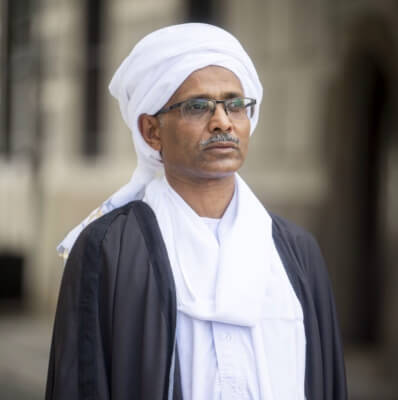Regional and International Stakes in Sudan’s Stability
By Magdi A. Mofadal
Sudan has been grappling with the gravest catastrophe in its modern history since the failed coup attempt staged by the Rapid Support Forces (RSF) on April 15th, 2023. Civilians, especially in Khartoum State and Darfur, the epicentre of the crisis, bore the brunt of the rebellion that followed and witnessed appalling atrocities committed by the rebels.
Rape; targeting civilians on ethnic basis; killing and harassing medical staff; looting and occupying hospitals and turning them into barracks; taking of civilians as human shields; sabotaging water and power facilities; using rooftops of houses as sites for snipers; looting, destroying, and burning down of private properties, banks, and stores; and storming prisons, and leaving inmates at large, are among the atrocities committed against civilians.
These abhorrent atrocities remind the people about the early days of the conflict in Darfur in 2003-2004, and re-opened deep and painful wounds that have not been healed yet.
Serious implications for a volatile region.

Sudan’s friends and partners, from the region and beyond exerted some mediation efforts and humanitarian support. However, there is a forgotten element in the crisis in Sudan.
These horrible atrocities should be a wakeup call for the region and international community, who are still grappling with ramifications of lawlessness and instability in neighboring Libya, of the grave consequences for instability and lawlessness in Sudan. Whatever happens in the country, will spill over to the wider region.
Sudan is a big country of over 45 million located strategically in a volatile region. With a total area of 1,86 million square kilometre, Sudan is the third largest country in Africa. Its territory is slightly less than France, Germany, Italy, Spain, and the UK combined. It ranks second in Africa in the length of land borders, with 6817 kilometres. It shares borders with seven countries: namely Egypt, Libya, Chad, Central African Republic, South Sudan, Ethiopia, and Eritrea. The Red Sea separates it from Saudi Arabia and the Arabian Peninsula.
A state collapse in Sudan, God forbid, will have grave consequences on Africa and beyond. An expansive space, that stretches from the Red Sea and the Horn of Africa to North Africa, Central Africa, West Africa, and the Sahel region, will be seriously endangered.
Long porous borders without natural barriers constitute serious security threats. To complicate matters further, some ethnic communities’ straddle across these borders in several countries, and a lot of mercenaries, from the Sahel region, were spotted fighting in the rebels’ ranks.
In the current crisis, the majority of those displaced from Khartoum went to other parts of the country, not to IDPs camps, while about one third crossed the borders to neighbouring countries. However, refugees and illegal immigrants from the region may reach unimaginable numbers in the case of state collapse in Sudan. Terrorist groups active in the region may find a golden opportunity in this environment in a wider space. Human traffickers and other criminal gangs will be emboldened. They will freely roam the Sudanese territories into Libya aiming at the Mediterranean route to Southern Europe.
Economic implications
Global trade may also be endangered. Sudan stretches over almost half the western shores of the Red Sea, a vital artery for international trade. Around 30% of the global oil trade and 10% of international trade pass through this vital waterway. The challenge of piracy, witnessed some years ago off the Somali coast, may be replicated off the Sudanese shores, with a possible alliance between pirates and terrorists.
On another front, instability in Sudan will have devastating economic impacts on the Republic of South Sudan. Africa’s youngest nation depends entirely on Sudanese infrastructure to process, transport, and export its crude oil, the backbone of its economy.
On the battle against hunger, Sudan is classified by the UN among the few African countries that can substantially contribute to achieving food security in Africa and the Arab World. The World Food Programme announced recently that the prices of some basic food commodities soared by around 28% in the Republic of South Sudan and Chad after the failed coup d’état in Sudan. Sudan is in Horn of Africa and adjacent to the Sahel, the two regions most prone to drought and desertification in Africa.
Potential in African integration
For the pan-Africanists and champions of African integration, Sudan is a fundamental player in linking the different economic communities in the continent. It connects the IGAD region with the countries of the Arab Maghreb Union through Libya, and with the Central African Economic Community (CEMAC) through Chad and Central African Republic. The former links IGAD with the West African Economic Community (ECOWAS). The East African Community, which Sudan may join, is on the country’s southern border, and is connected to the South African Development Community (SADC).
Sudan stretches over long segments in the economic corridor connecting Cape Town with Alexandria. Through Sudan and Egypt, Sub-Sahara Africa is connected to the Middle East and further north to Europe. The proposed Port Sudan-Dakar Railway Line is a promising connection between the Red Sea and the West African Atlantic coast. This corridor is increasingly becoming important as Africa´s trade shifts to the economic giants of Asia, especially China and India.
Thus, it is crystal-clear that regional and international stakes in Sudan’s stability cannot be overestimated. The implications of state failure in Sudan will be felt in several parts of Africa. Besides the humanitarian and mediation support, Sudan urgently needs a smart economic and political partnership with the international community. As the country strives to chart its path to peace, reconciliation, democracy, and development, it is hoped that all regional and international partners will work the Sudan Government to achieve this noble goal. This is the only way out of the current quagmire, and for a prosperous regional future.
(Magdi A. Mofadal is the ambassador of Sudan to Austria. The views expressed are the sole responsibility of the writer.)


- The RSF mutiny’s resonance in Sudan: Understanding some of its impacts on regional and global dynamics - September 23, 2023
- Factors Stalling the Peace Process in Sudan - August 28, 2023
- Reviving the Bread-basket Strategy: The Backbone of Sudan’s Recovery - August 10, 2023

























